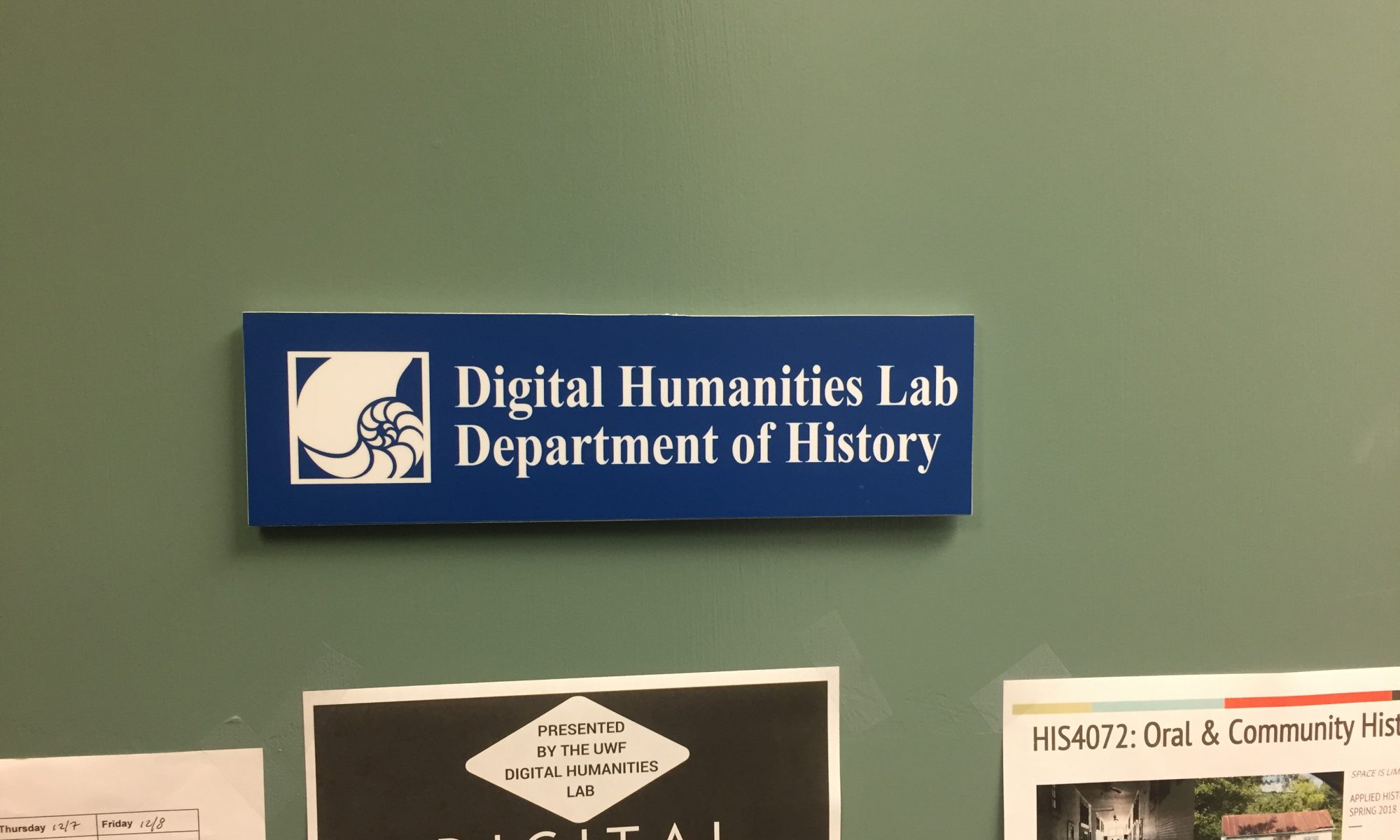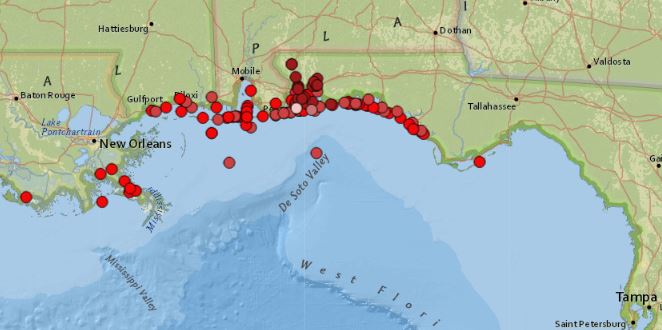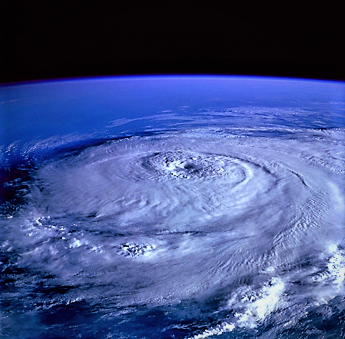
Pensacola remains a beautiful port city which boasts deep waters and a tropical climate. An intense analysis of weather events effecting Escambia County highlight a long history of hazards which challenged our coastal community and enabled individuals to shine in innovative ways as they met the challenge of weather events. The hazards landscape identified hurricanes, tornadoes, thunderstorms, floods, and extreme temperatures. This project allowed developers, as historians, to present history to the public in a unique way which tied weather events to places, structures, and industry. The Tristan de Luna expedition, for example, arrived in Pensacola Bay during the late summer of 1559 and immediately became challenged by a strong hurricane event. The expedition brought attention to settlement prospects. Other settlement attempts followed initiated by the Spanish, French, and British. When the destructive force of storms disrupted settlement attempts residents moved further inland, yet hurricane force winds remained within reach of these early settlements.
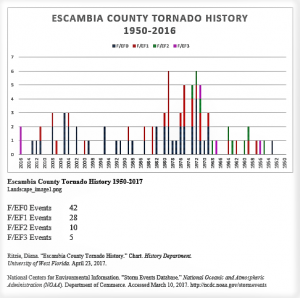
The survey, presented in an interactive manner, allows community members to proactively explore and better understand the importance of having a balance with nature in city development and emergency management decisions. The survey, for example, identified 101 tropical events between 1850 and 2017, often leading to loss of life, injury, destruction of structures, beach erosion, loss of natural commodities, and loss of business and tourism opportunities. The survey further revealed individual weather events holding historical significance. For example, in 1962, Escambia County experienced a rare cold front which brought temperatures below 14 degrees for three consecutive days. In 1980, temperatures topped 103 for three consecutive days. Analyzing extreme temperature history allows agricultural businesses to better assess opportunities to produce healthy crops in a natural environment. The hazards survey identified 20 strong tornadoes which became classified as EF2 and F3 intensity events effecting Escambia County between 1950 and 2017. Weather events such as tornadoes, tropical storms, and floods devastate our growing population centers, and disrupt businesses and natural commodity development. In 2014, Escambia County experienced a historical flood event, which destroyed homes and infrastructure, producing $150 million dollars in damage. A lack of natural areas for large amounts of water to flow, exacerbated by increased storm intensity, explained segments of the 2014 flood event. Human infringement became a factor which prevented soil sediment from traveling naturally. As our community develops, engineers must investigate the advantages of working with soil and water flow to compensate for our weather hazards. Recent intense hurricane activity in the Gulf of Mexico, and a history of many direct hits from major storm events, promote a growing demand for response regarding how the people living in coastal communities should prepare for weather events.
Featured Sites
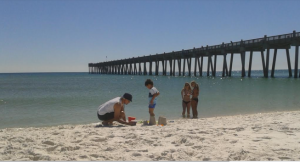
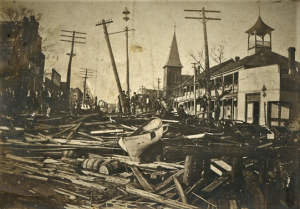
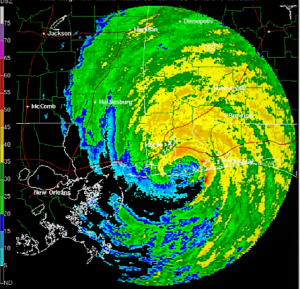
Recommended Readings
Office of Coastal Management. “Historical Hurricane Tracks.” National Ocean Service. NOAA. Department of Commerce. Accessed March 1, 2017. http://coast.noaa.gov/hurricanes/index.html
Weather Squadron. “A History of Hurricanes in the Western Florida Panhandle 1556-1999.” Eglin Air Force Base. August 2015, 1-11. Accessed February 2, 2017. http://freerepublic.com/focus/f-news/1473774/posts
National Climate Data Center. “Storm Events Database: National Centers for Environmental Information.” National Weather Service. NOAA. Department of Commerce. Accessed March 1, 2017. https://www.ncdc.noaa.gov/stormevents
Author: Diana Ritzie
ORCID ID: 0000-0001-6678-3157
